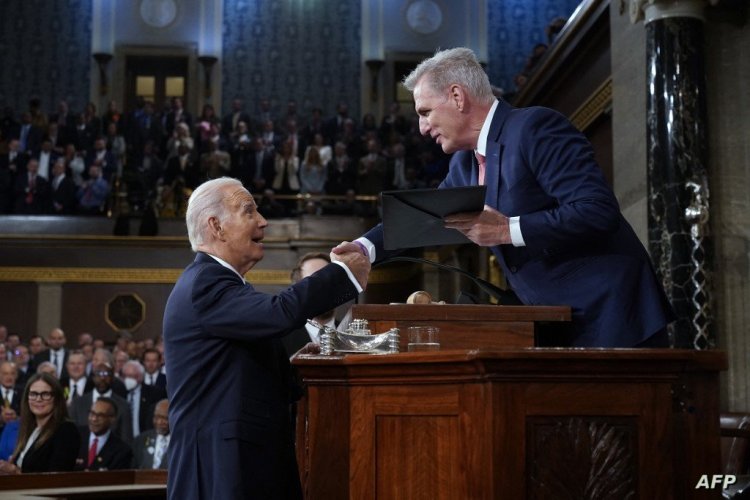What are the repercussions of the debt crisis on the US economy?
Will the US president succeed in raising the debt ceiling, or will McCarthy remain intransigent? What are the repercussions of the American case?

US President Joe Biden and senior Republican lawmakers are scheduled to announce their positions, regarding raising the US debt ceiling.
The Biden administration and Democratic lawmakers are seeking to raise the $31.4 trillion debt ceiling, but Republican lawmakers refuse to do so, with an unprecedented deficit looming if Congress does not act within the next 3 weeks.
Debt ceiling crisis
If the United States does not raise the debt ceiling, this will inevitably mean defaulting on its debt repayment date, which has never happened in the history of the United States, even during the worst recessions it faced, according to Reuters news agency.
Default may lead to a deep economic recession, which in turn will be reflected in the global economy, because US bonds are one of the main pillars of the global financial system, at a time when the countries of the world are not lacking in more crises that have accumulated since the outbreak of the Corona pandemic in 2019, and after that the supply chain crisis. And the outbreak of the Russian-Ukrainian war, which entered its second year.

Constitutional duty
The US President calls on lawmakers to raise the national debt ceiling, but Republican House Speaker Kevin McCarthy said his House will not approve any agreement that does not cut budget spending, which has exacerbated the budget deficit.
"Congress has a constitutional duty to act to prevent default," White House press secretary Karen Jean-Pierre told reporters Monday, stressing that "the president will be very clear about that."
Mutual accusations
The Republicans, who control the House of Representatives by a simple majority, accuse the Biden administration of “expanding government spending” for electoral purposes, but the Democrats, on the other hand, deny this, accusing the Republican Party of “pressuring the US president to reduce government spending in order to arouse the ire of the voter.” American.”
Therefore, it can be said that the battle, which appears in its political and economic aspects, has another aspect, which is the electoral and partisan aspects.

Debt ceiling battles usually ended with bipartisan agreement in the final hours before the debt ceiling was reached, thus avoiding default.
And she urged the American Chamber of Commerce to reach a “quick” agreement between the two parties, so that “the reputation of the United States of America will not be shaken.”

What are the repercussions of default?
In 2011, a dispute over raising the debt ceiling led to a downgrade of the country's credit rating.
According to Reuters, some former lawmakers warn that the issue this time is more serious, due to the severity of the division and the widening gap of opinion between the two sides.
Treasury Secretary Janet Yellen said that failure to raise the debt ceiling would represent a major blow to the US economy, and would weaken the dollar as a global currency, pointing to a large gap between Biden's position and the Republicans' position with regard to raising the debt ceiling, but she stressed in an interview with “CNBC” on the need to “hold a discussion and reach a settlement.”


 Shrouq
Shrouq 












